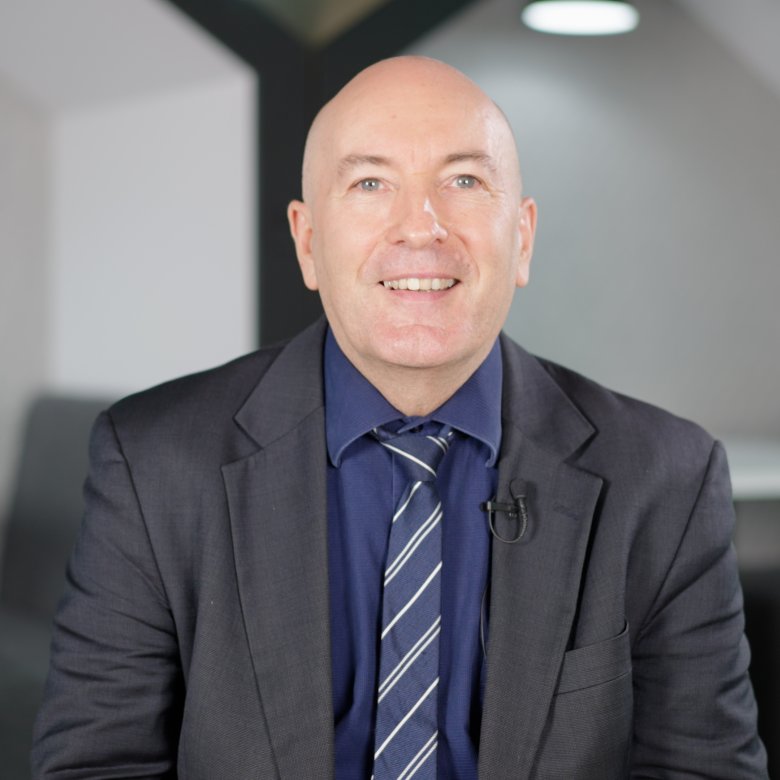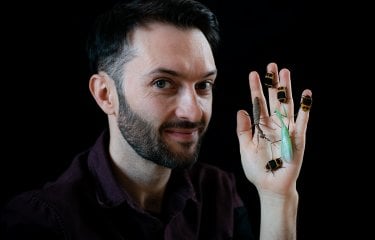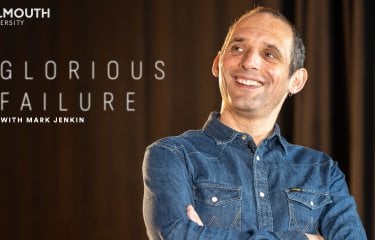Meet Msc Marketing course leader Pedro Longart
26 October 2023

We spoke to Marketing MSc Course Leader Dr Pedro Longart about his career in industry, what initially drew him to consumer behaviour and why students should consider studying Marketing at postgraduate level.
When did you first become interested in consumer behaviour?
So, I first got a taste for consumer behaviour while running my own import-export business in my native Venezuela. I was juggling a tonne of roles; from crunching numbers and sorting out the legal issues to ‘wheeling and dealing’ with clients and suppliers. But it was marketing that really grabbed me. In the '90s, it was all about ads on the telly, radio spots, and newspaper features. Oh, and let's not forget giving away free samples...
We mostly dealt with supermarkets and health and beauty retailers, so the personal touch was crucial. I was into all sorts of stuff – and other markets, such as car springs – but consumer goods was where my heart lay. Trying to set up a classy brand in a market that's chock-full of options? Now, that's a proper puzzle. That's when I realised how crucial it is to understand what makes customers tick.
Digging into my consumer persona became a big part of the job. Knowing what makes people tick helped us decide everything: from the model in our adverts and what we'd put in our print materials to the images we'd flash on TV. Even the channels we'd pick for our ads depended on understanding the customer's motivations and what they’d be watching.
Then I moved to the UK, and my undergraduate days at the University of West London were centred in hospitality management, followed by real-world experience working in hotels and restaurants until I worked up to become a Fellow of the Institute of Hospitality. From here, focusing on the hospitality sector – whilst continuing my academic journey – just made sense.
So, then came my MBA. It led to a deep-dive into marketing, with my dissertation centred on the importance of word-of-mouth in restaurant marketing. The topic was so captivating, it got published in a top-tier journal, International Journal of Contemporary Hospitality Management. This is the point where it all clicked.
That's when I realised I wanted to zone in on how people make choices in places like restaurants, so I finally ended up doing a PhD on 'Consumer Decision Making in Restaurant Selection,' and consumer behaviour has been my central academic focus ever since.
You also founded your own consultancy. What’s the most valuable thing you’ve learned?
The most important, universal lesson I've learned is that getting the basics of business right is crucial. Truthfully, if the fundamentals aren't solid, even the best marketing strategies won't be effective.
Firstly, it's all about having the right team. Success really comes from people who are not only skilled but also great at collaborating.
Secondly, resources are key. The digital marketing landscape is filled with various suppliers and so-called 'solutions.' But the reality is many of them aren't worth the investment. So, being savvy about what you're spending money on is vital.
Lastly, you've got to consider HR. It's not just about hiring the right talent; it's also about making sure they can work well as a team once they're on board.
Nail these basics, and you'll set the stage for your marketing strategies to succeed.
Why do you think people today should study marketing to master’s level?
Some people might see a master's degree merely to increase their income or get ahead in their career, or even as an opportunity to live in another country. But let's focus on the true value: the legitimate reasons for pursuing such advanced study.
I've seen students come to the UK and genuinely benefit from the high-calibre education we offer, walking away with a set of transferable skills. I've overseen numerous master's dissertations and watched students excel in various ventures post-graduation. Whether they've embarked on entrepreneurship or climbed the corporate ladder, they've gained significant value from their master's programmes.
It's not just about academic knowledge, either; it's also about building self-assurance and acquiring skills that have broad applications. I even recruited a master's graduate into my consultancy who showed quick adaptability and excellent analytical capabilities – qualities that are finely tuned during post-graduate study.
A master's degree equips you with a skill set that is highly transferable and beneficial in diverse settings.
After such a varied career, what excites you about leading Falmouth’s Marketing MSc?
I've been fortunate to receive considerable support and creative latitude when I've been creating the course, empowering me to bring about meaningful changes.
This extends beyond the academic sphere; it's an opportunity to positively impact a dynamic university community and, most significantly, transform the lives of individuals through the medium of education. This position is not just a source of excitement for me, but also a profound responsibility.
What fuels me is my aspirational vision for the programme: to elevate it to not only one of the most distinguished master's degrees in marketing in the UK, but also a globally recognised standard for postgraduate education in this field.
Once I had to pen a 6-word memoir and settled on "A manager to change people's lives." I chose "manager" to emphasise that the role carries a wider scope of impact than "educator." As a manager, I'm not merely imparting knowledge; I'm also shaping environments—be it in academia, business, or any other initiatives—where individuals can grow intellectually whilst advancing their careers and personal lives.
As a course leader, my role is transformative, extending beyond education to empower people to earn a livelihood and make a meaningful societal contribution. This capacity allows me to leverage resources, steer strategic directions, and forge opportunities that elevate entire communities.




